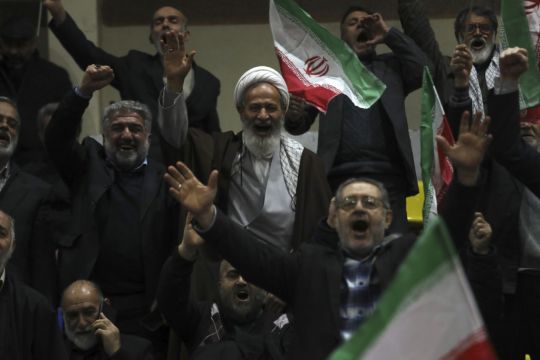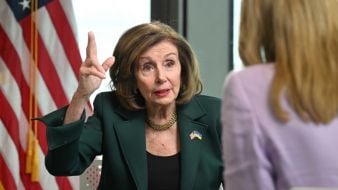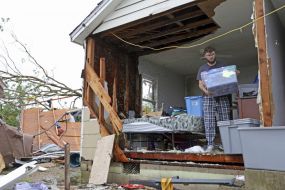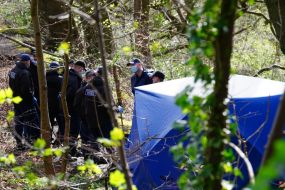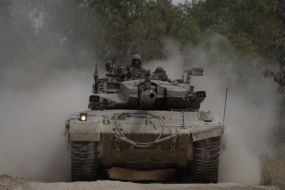Iran has started voting in its first parliamentary elections since the 2022 protests over its mandatory hijab laws with questions looming over just how many people will turn out for the poll.
Supreme Leader Ayatollah Ali Khamenei, 84, will cast one of the first votes in an election that also will see new members elected to the country’s Assembly of Experts.
The panel of clerics, who serve an eight-year term, is mandated to select a new supreme leader if the Ayatollah steps down or dies, giving their role increased importance with his age.
Around 15,000 candidates are vying for a seat in the 290-member parliament, formally known as the Islamic Consultative Assembly. Terms run for four years and five seats are reserved for Iran’s religious minorities.
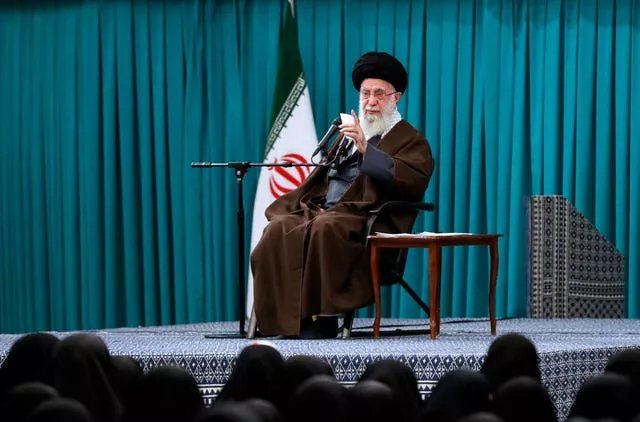
The parliament has oversight over the executive branch, votes on treaties and handles other issues, although in practice, absolute power in Iran rests with its supreme leader.
Hard-liners have controlled the parliament for the past two decades with chants of “Death to America” often heard from the floor.
Under parliament speaker Mohammad Bagher Qalibaf, a former Revolutionary Guard general who supported a violent crackdown on Iranian university students in 1999, the legislature pushed forward a bill in 2020 that greatly curtailed Tehran’s co-operation with the United Nations nuclear watchdog, the International Atomic Energy Agency.
That followed then-president Donald Trump’s unilateral withdrawal of America from Iran’s nuclear deal with world powers in 2018 — an act that sparked years of tensions in the Middle East and saw Iran enrich enough uranium at record-breaking purity to have enough fuel for “several” nuclear weapons if it chose.
More recently, the parliament has focused on issues surrounding Iran’s mandatory head covering, or hijab, for women after the 2022 death of 22-year-old Mahsa Amini in police custody, which sparked nationwide protests.

The protests quickly escalated into calls to overthrow Iran’s clerical rulers. A subsequent security crackdown killed more than 500 people, with more than 22,000 detained.
Calls for an election boycott have spread in recent weeks, including from imprisoned Nobel Peace Prize laureate Narges Mohammadi, a women’s rights activist who called them a “sham”.
The boycott calls have put the government under renewed pressure. Since its 1979 Islamic Revolution, Iran’s theocracy has based its legitimacy in part on turnout in elections.
The state-owned polling centre ISPA had not put out election data prior to the vote until Thursday, something highly unusual as their figures typically get released much earlier.
Its polling, based on a survey of 5,121 voting-age people, predicted a turnout of 23.5% in the capital, Tehran, and 38.5% nationally. It said the margin of error in the poll was 2%.
Iranian state television showed crowded polling stations but elsewhere, there appeared to be few voters braving the freezing temperatures in Tehran.
In one place, a young woman without a hijab and her mother, wearing one, entered the polling station together. There was no comment from officials or police on hand.
“I accompanied my mother who wanted to vote just to remind authorities about last year’s crackdown,” said the daughter, who gave her first name, Zohreh. Her mother voted for a relative moderate running in their district, while Zohreh declined to cast a ballot, she said.
Meanwhile, a heavy security presence could be seen across the capital, with ordinary and anti-riot police officers visible in main squares and junctions.
Some 200,000 security forces have been deployed across the country as more than 59,000 polling stations opened.
Estimates put the voting-age population at 61 million.
Polling stations will be open until 8pm local time after authorities extended the voting by two hours. Initial election results are expected as early as Saturday.
